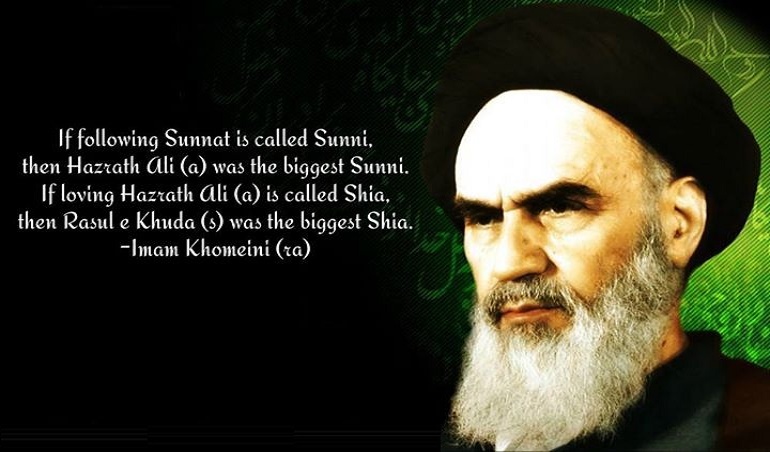-Imam Khomeini believed that despites difference of openion among Mulims, they can reach unity by focusing on their commonalities

In recent century a lot of efforts have been made to bring unity to the Muslim community which was initiated by Jamal al-Din and Muhammad Abduh. Many other Muslim scholars followed their path to realize the dream of a united Muslim Ummah. The establishment of Dar al-Taqrib Bain al-Madahib al-Islami is one such effort which aims at achieving this goal.
Imam Khomeini, the late leader of the Islamic revolution in Iran who was also a great scholar and a renowned jurist, touched on this issue in his lectures and writings and regretted a lot the lack of trust and amicability between Muslim states. He considered sectorial hostility between different denominations a tool at the hand of the imperialist powers which they use to further their goal of maintaining disunity among Muslim states in order to hinder the growth of Islamic civilization and preserve their own hegemony and as a result, garner more economic advantages to their own favor. Numerous times in his speeches, Imam Khomeini warned Muslims and Muslim leaders not to fall victim to this plan.
According to him, resentment between the Shias and Sunnis is not to the benefit of either of them; rather it is pursued, as a policy of divide and rule, by those who benefit from a disintegrated Muslim Ummah. He said,
“We are one and we are not apart from each other. The difference is [only] a denominational difference. This should not cause our disagreement in the [common] principle i.e. Islam…. Now that Islam is in danger, it is compulsory upon all of us to hold each other’s hands and do not continue making previous mistakes. We should not let those hands that like past want to sow discord among us.”[1]
He believed that having different opinions is a common phenomenon and it could exist between members of one sect, party and even family. Despite all differences of opinion, focusing on the commonalities and unanimous beliefs, which are too many, can pave the ground for political unity between Muslim states and a sense of cordiality, trust and friendliness between all Muslims.
Notes:
[1] Ruh al-Allah al-Musavi al-Khumaini, Sahifeh Noor, Tehran: The Institute of Editing and Publishing the Works of Imam Khomeini, vol. 6. p. 95.



